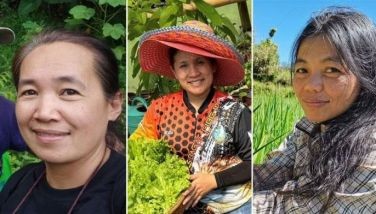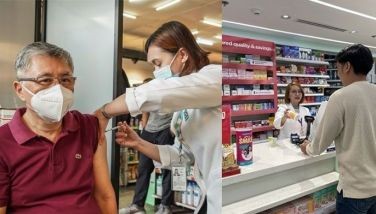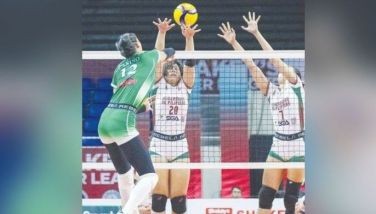PCARRD reports success of banana program in Quezon
MANILA, Philippines – Small farmers in Gen. Nakar and Infanta, both in Quezon province, have benefited from the S&T Anchor Program for Banana (STAP Banana) by using tissue-cultured cultivars of saba, lakatan and latundan varieties.
The Philippine Council for Agriculture, Forestry and Natural Resources Research and Development (PCARRD) reportedly recently that the production of small banana farmers in the two towns increased.
Started in 2004, STAP Banana was implemented to provide science and technology (S&T) interventions to small farmers initially and raise the yield and improve the quality of the three banana varieties.
At the outset, PCARRD provided information and technology on cropping systems and surveyed the pests and diseases in Luzon even as it conducted socioeconomic studies of the areas covered by the project.
The council said farmers and staffers of the Department of Agriculture (DA) as well as municipal employees were trained on the establishment and management of grow-out nurseries for biofertilizer-inoculated tissue cultured saba cultivars, good field management and postharvest practices.
Work on improving saba culture was crucial to farmers in Gen. Nakar and Infanta, both of which had been battered by typhoons, since banana production could provide them the income they needed to rebuild their lives.
The municipal governments of Gen. Nakar and Infanta also agreed to support the project and even take control of the banana tissue-culture grow-out nurseries.
From the success of the banana project in the two towns, the Quezon farmers helped establish 30.5-hectare banana demo farms in Quirino, Cavite and Mindoro.
In Quirino, 15 ha were devoted to lakatan, seven hectares in Cavite for latundan and 8.5 ha in Mindoro for saba.
Based on the accomplishments of STAP Banana, PCARRD crafted the National Integrated Banana Research and Development Program (NIBRDP).
This program called for studies on S&T-based integrated crop management (ICM) and good agricultural practices (GAP) on saba, lakatan and latundan in Cagayan Valley, Zamboanga, Davao and Caraga Regions.
NIBRDP promotes a science-based package of technology (POT) for banana.
POT has three components—the use of pathogen-free tissue cultured planting materials, especially lakatan, application of fertilizer and population management and sanitation.
NIBRDP provides subsidies for planting materials and fertilizers for those who apply S&T innovations.
In Region 2 alone, it has provided 12,000 tissue cultured bananas, 250 suckers of saba and agricultural inputs to 34 farmers.
- Latest




























